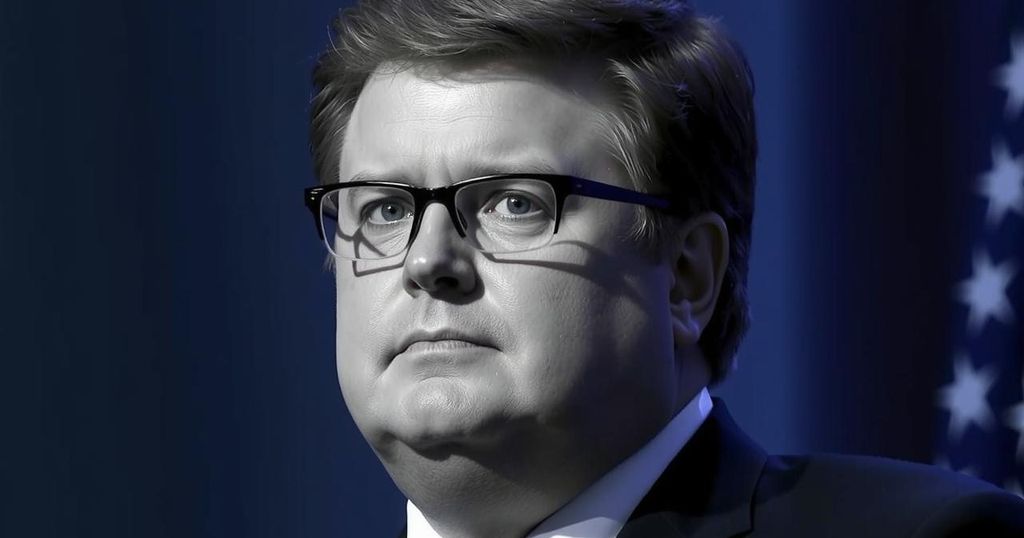Senator JD Vance Discusses Russian Election Interference Amid Concerns on Disinformation

Senator JD Vance of Ohio addressed the issue of Russian disinformation in U.S. elections, expressing skepticism about punitive actions against Russia. He emphasized focusing on national interests rather than retaliation, while commending the current state of U.S. electoral integrity.
Senator JD Vance of Ohio has recently addressed the topic of Russian interference in U.S. elections, specifically concerning disinformation campaigns. Following a statement from multiple intelligence agencies—including the FBI and the Office of the Director of National Intelligence—reporting that Russia was behind a false social media video depicting ballot destruction in Pennsylvania, Vance appeared on “Face the Nation with Margaret Brennan.” In this interview, he expressed reluctance to engage in actions against Russia for its election meddling, asserting, “I think a lot of countries are going to try to manipulate our voters. They’re going to try to manipulate our elections. That’s what they do.” Vance emphasized that the focus should remain on the best interests of the United States in its dealings with Russia, rather than on punitive measures for digital disinformation. He remarked, “I think the bigger question is, what is in our best interest vis-à-vis Russia, not what price Russia should pay for putting out social media videos.” The senator highlighted U.S. intelligence assessments suggesting that Russia aims to undermine the Harris campaign while Iran seeks to damage the Trump campaign. He was sceptical about the effectiveness of sanctions imposed by the Biden administration in response to Russia’s invasion of Ukraine, arguing that U.S. foreign policy should not pivot solely around social media actions undertaken by foreign entities. When questioned about whether Russia’s disinformation activities crossed a serious threshold, Vance acknowledged the frustrations but noted, “Well of course. I’d call them to knock it off, but this is not a school yard. I call on Moscow to knock it off, are they actually going to do it?” He condemned the funding of fake social media initiatives by Russia but refrained from advocating for aggressive rhetoric against them. Shifting the focus, he conveyed that a higher priority should be placed on persuading Russia to cease its support for Iranian aggression in the Middle East, particularly in light of ongoing tensions in the region. Furthermore, Vance expressed confidence in the integrity of the electoral process, stating, “I think that they’re doing a good job. I think they’re doing a better job than they were in 2020.” Ultimately, he reaffirmed his commitment to the American Constitution and the belief that former President Trump also respects its principles.
In this context, the discussion revolves around the growing concern of foreign interference in U.S. elections, particularly from Russia. Reports from intelligence agencies indicate that such interference involves disinformation campaigns aimed at influencing voter perception and behavior. This case highlights the ongoing challenge of safeguarding electoral integrity and the political discourse surrounding strategies for addressing external threats to the democratic process. Senator Vance’s remarks reflect a complex view of foreign meddling, raising questions about the appropriate U.S. response and the balance between expressing condemnation and ensuring national interests are prioritized. The implications of these discussions are significant as they tie into broader geopolitical strategies, as well as domestic electoral policies, especially in preparation for upcoming elections.
In conclusion, Senator JD Vance’s recent statements on Russian interference in U.S. elections reflect a prioritization of national interests over punitive actions against foreign entities. While acknowledging the presence of disinformation campaigns, he advocates for a more measured approach, focusing on America’s strategic dealings with Russia. His confidence in the electoral process and commitment to the Constitution highlight the multifaceted perspectives individuals in political office hold regarding election integrity and foreign influence.
Original Source: www.cbsnews.com






